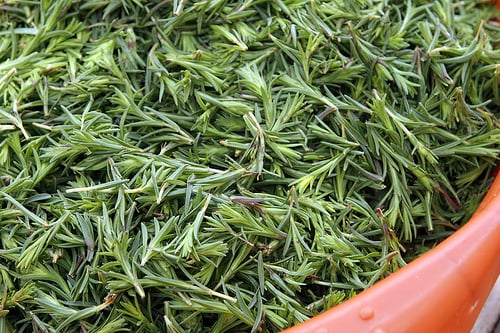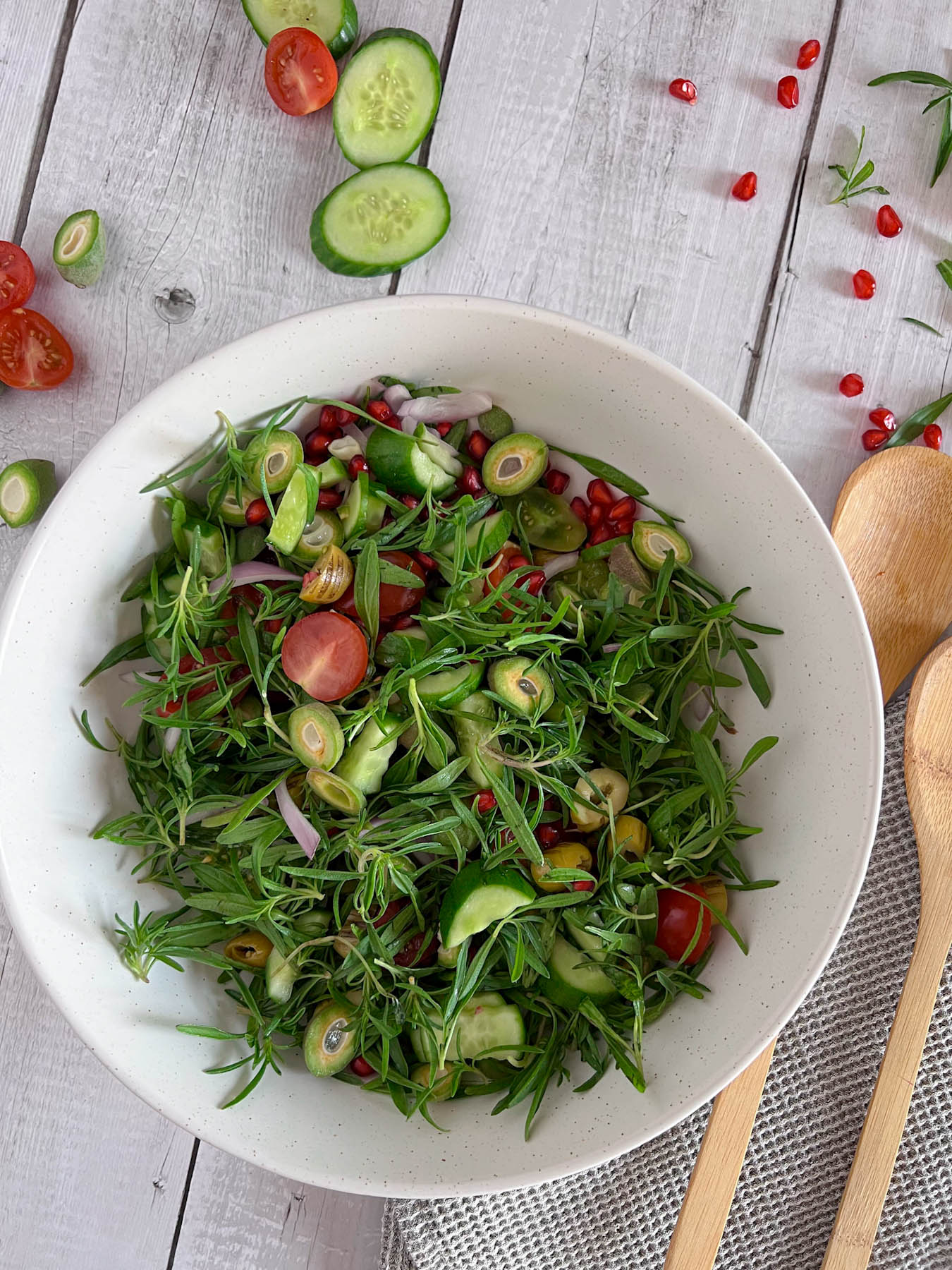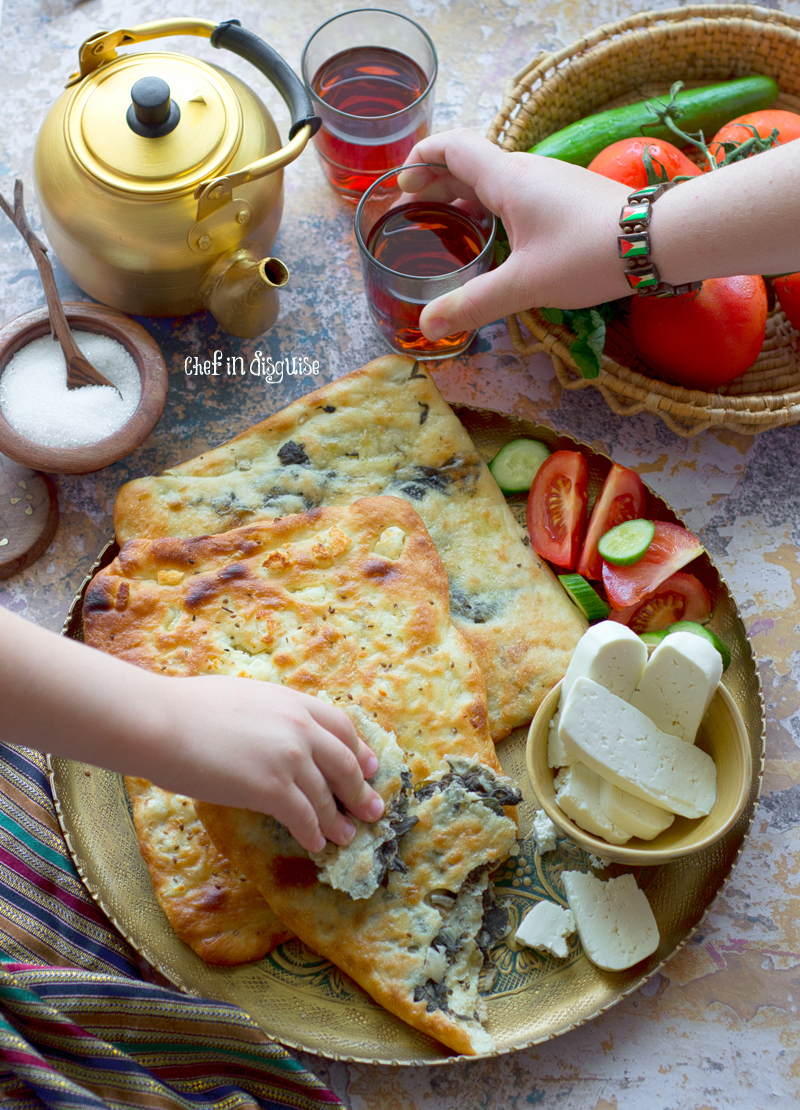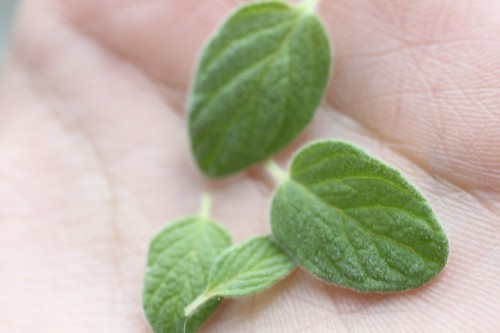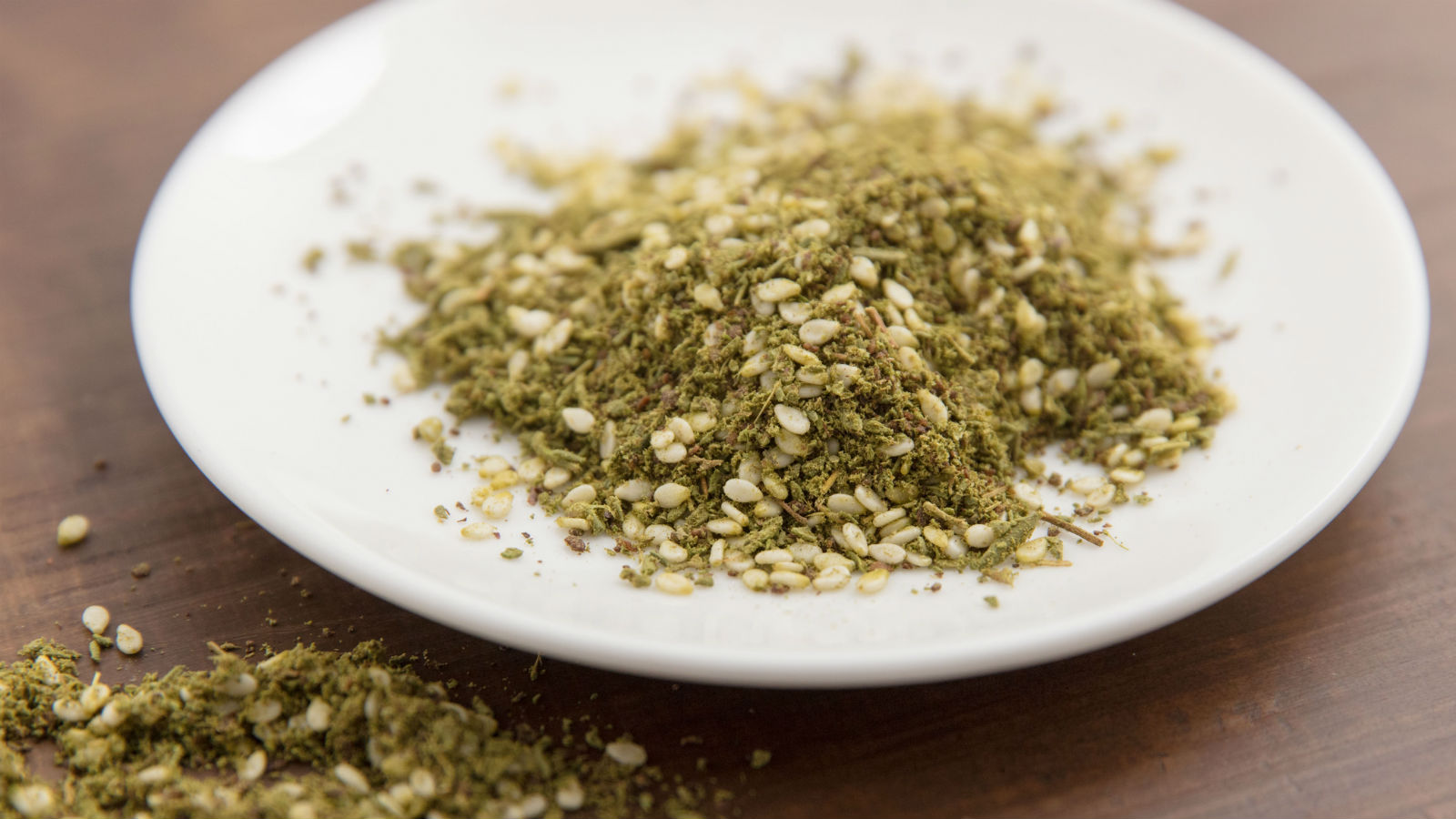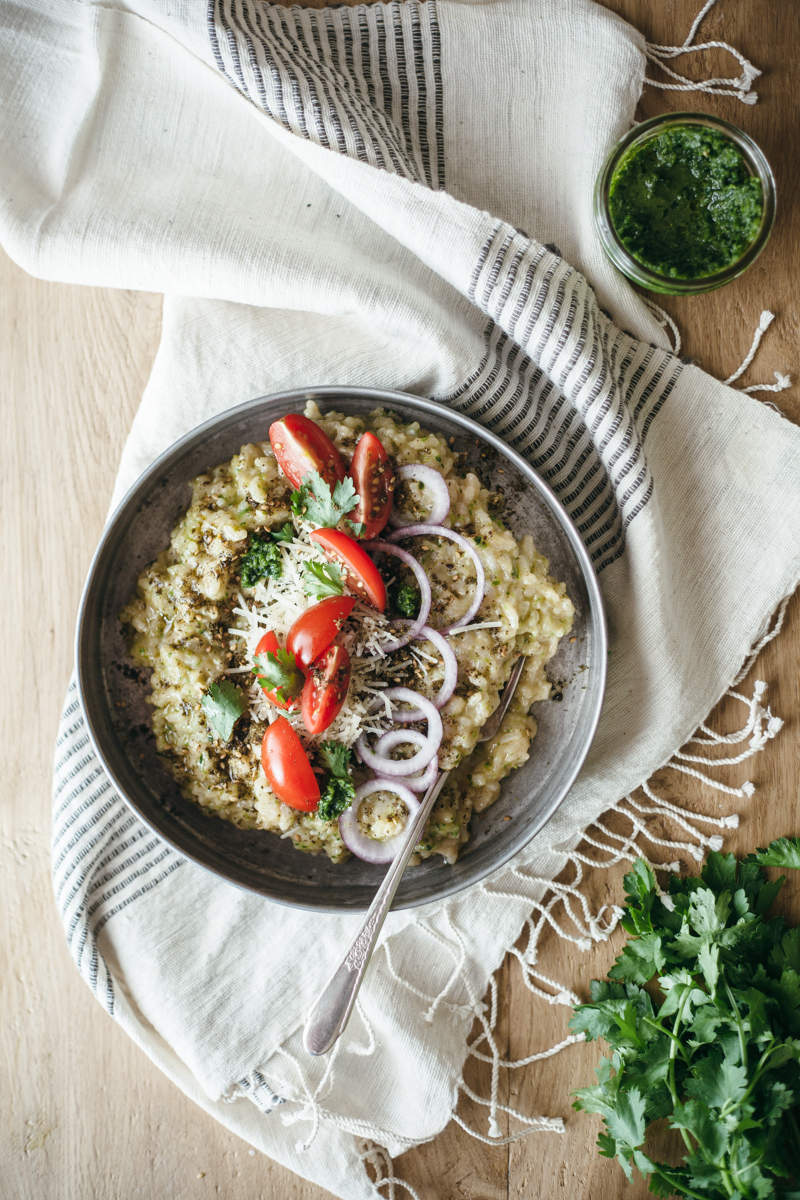What is
Fresh Za'atar?
Fresh Za'atar is a Middle Eastern herb blend that combines various fresh herbs typical of the region, most commonly thyme, oregano, marjoram, and herbed spices, often mixed with sesame seeds and sumac. When made fresh, it is commonly used as a condiment or flavoring agent, often drizzled with olive oil and served alongside bread or vegetables.
Origins & History
Za'atar has a rich cultural history that dates back hundreds of years in the Middle East, particularly in countries like Lebanon, Syria, Israel, and Palestine. It is not only a culinary staple but also carries cultural significance, being used in various traditional dishes and shared communally, especially during meals. The term 'za'atar' in Arabic refers to both the herb blend and the thyme-like herb itself.
Taste & Texture
Fresh Za'atar has a bright, herbal flavor with a slight tanginess from the sumac, complemented by the nuttiness of the sesame seeds. The overall taste is aromatic, fragrant, and savory, making it a versatile addition to both traditional and modern dishes.
Ingredients

Thyme
A fragrant herb commonly used in Mediterranean cuisine, known for its earthy and slightly minty flavor.
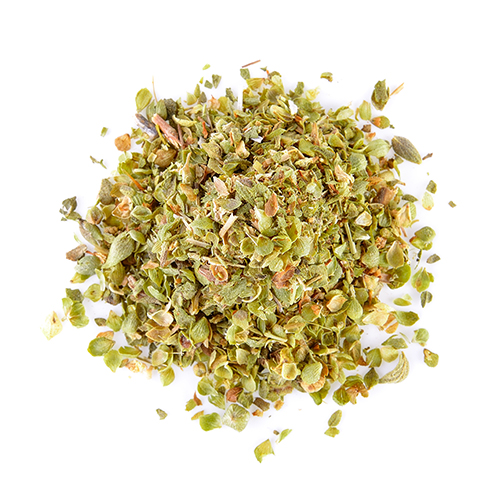
Oregano
A popular herb in Italian and Mediterranean cuisines that adds a warm, slightly bitter flavor to dishes.
Marjoram
A sweet, mild herb related to oregano with a hint of citrus; used to enhance the flavor of various dishes.
Sumac
A tangy spice made from dried and ground sumac berries, often used in Middle Eastern cooking to add a sour note.

Sesame Seeds
Nutty flavored seeds that add crunch and richness to the za'atar mix.
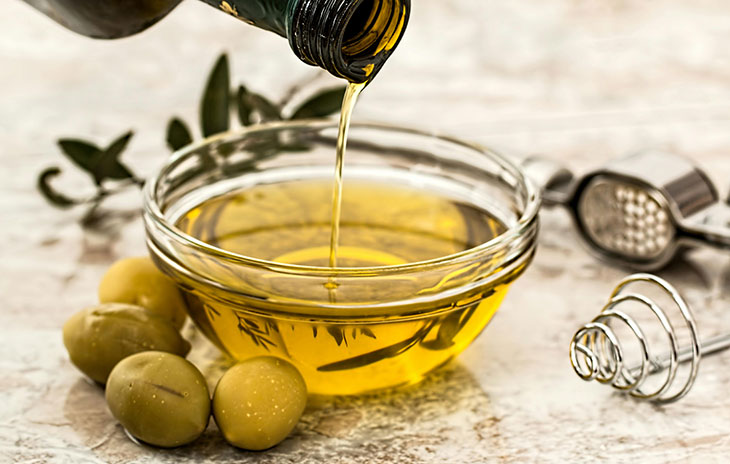
Olive Oil
A staple in Mediterranean diets, used to enhance flavor and add moisture when serving fresh za'atar.
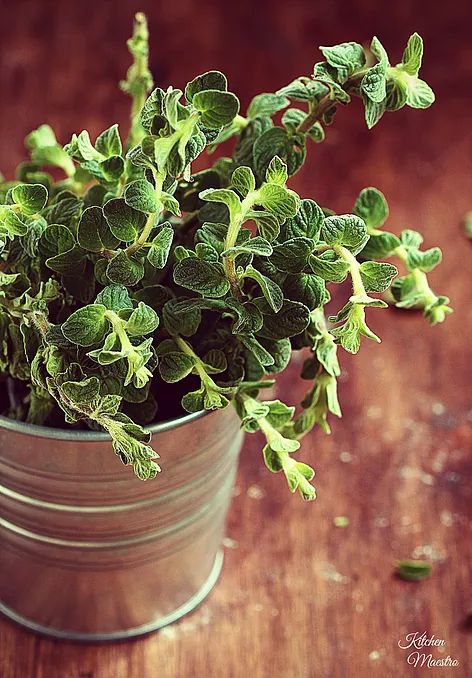
Images may not reflect the actual item.


